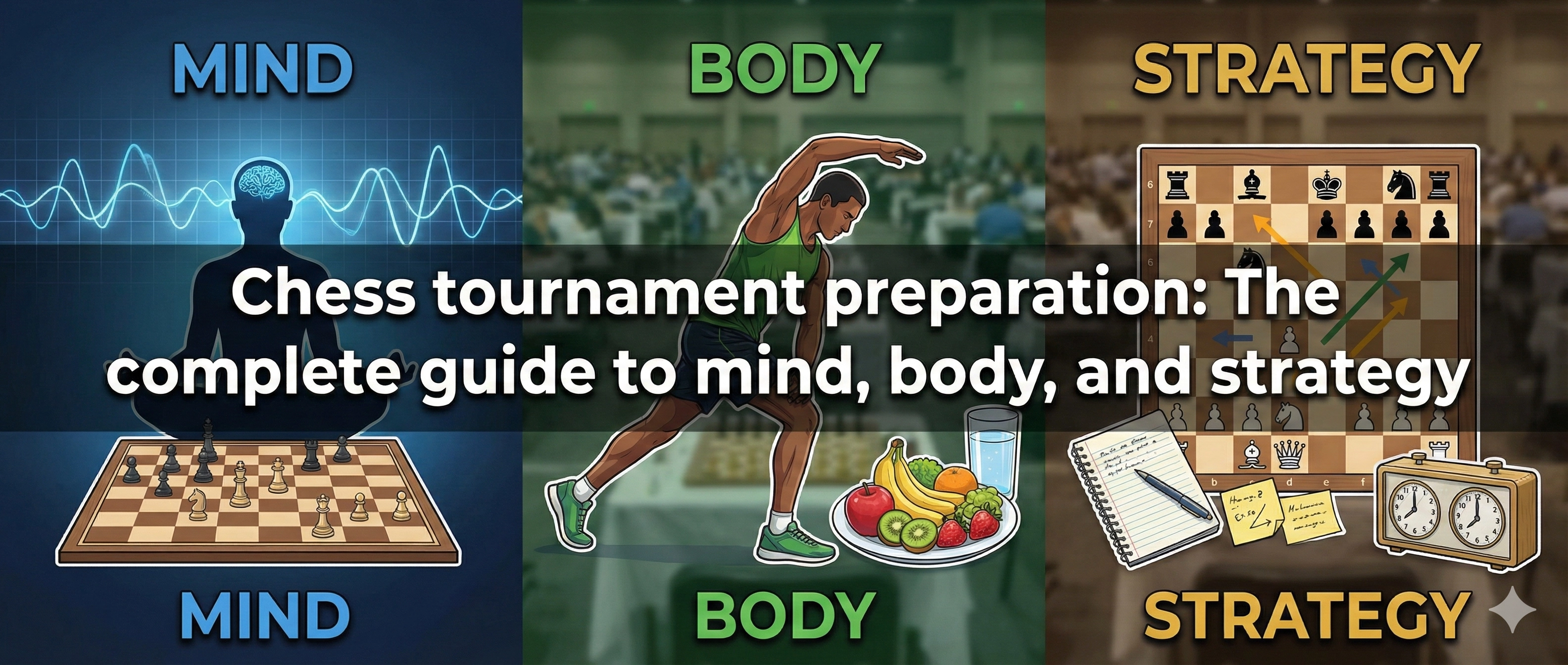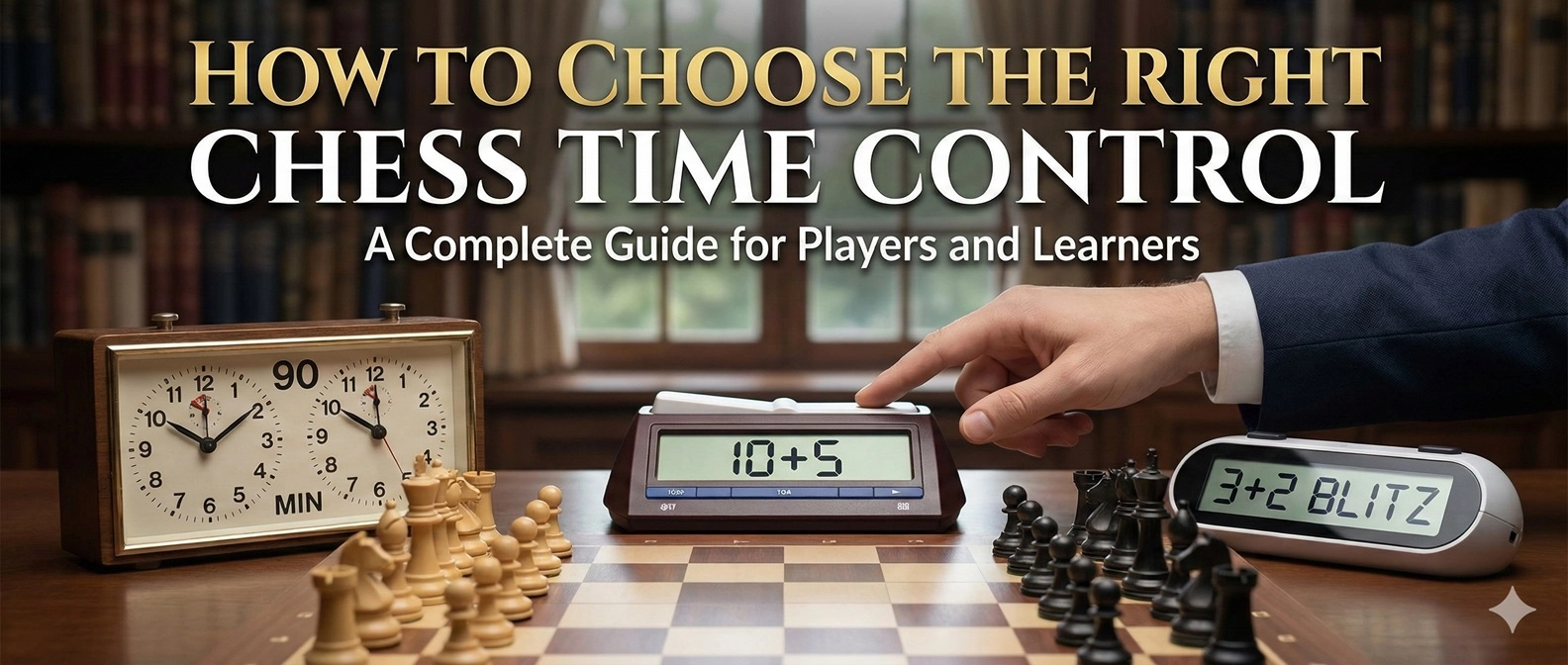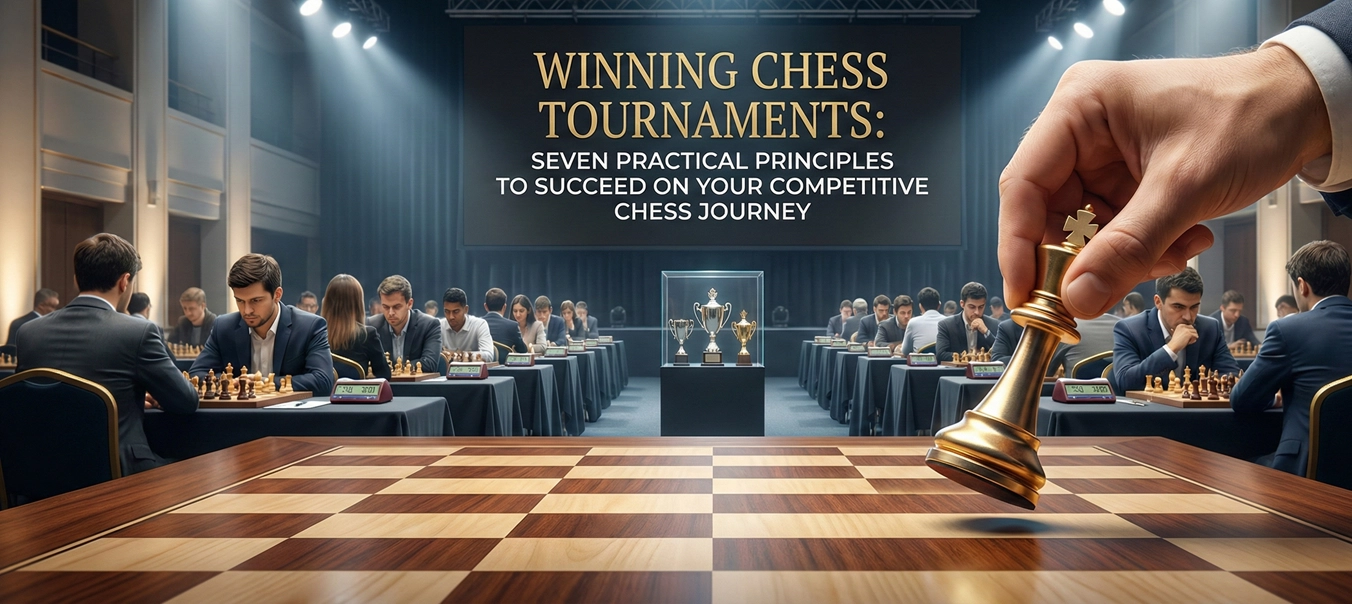The world-renowned chess GM Magnus Carlsen started playing chess at the age of 5, and American chess and Shogi player GM Larry Kaufman was a late bloomer in chess.
Which begs the question: Does age even make any significant difference? Maybe. Maybe not. Let's find out.
What's the Best Age to Learn Chess?
If you ask me the right age for learning chess, I would say-it depends. I am sorry to burst your bubble but it doesn't work like that! Most experts say that 8 years is the perfect age to introduce chess to your child.
Why so? Because it is at this age that children are still undergoing cognitive development. According to Jean Piaget's cognitive development stage model, a child develops a concrete operational stage, i.e., a child can reason logically at age 7. This means that their neuroplasticity is at its lowest, resulting in a curious mind that simultaneously grasps concepts and can think creatively.
Many experts believe that at the age of 3-4 years, the child is not cognitively capable of understanding the words and concepts like diagonals, strategy, and other logic. They will riddle you with questions like why the king moved in one way and the bishop in another, which can sometimes be irritating! In short, it will pass over their head, and they will find it boring.
But you'll say I've heard of that player who started at 3 and went up against is a grandmaster. Then you might be missing the word "exception!" This kid is Mikhail Osipov - a chess prodigy, who went up against Anatoly Karpov. He didn't win, but that isn't the point. This 3-year-old child grasped the concepts of chess well enough to go up against a grandmaster.

After all this, as a parent, you want your child to be intelligent and intelligent and want them to
After all this, as a parent, you want your child to be intelligent and intelligent and want them to learn chess and know what's the right time to do the same.

1. 5 Signs Your Child
Ready to Play Chess?
Children may not have a long attention span at first, but introducing a chess set at home can spark natural curiosity. Leave it with them and watch how they interact it often reveals more than formal lessons. Interestingly, the signs that a child is ready for chess are less about the game itself and more about qualities like curiosity, patience, and an interest in patterns, rules, and problem-solving. These subtle signals often say more about readiness than any test of ability.

2. They experience Loneliness Children
Generally won't feel loneliness, but eventually, they will start saying stuff like "I'm bored," and this feeling almost always stems from feeling out of place.
What does that mean? It means that children who get bored frequently have a high creative and a developing intelligence quotient that needs exercising. And Chess could be the perfect activity to release that pent-up energy.
3. They Paint
Do some form of Creative Activity all-day Some people would argue that their child is good at drawing, but do they pick up and start drawing another one until they are exhausted?
Some would even say that children may do this to cope with boredom, but that isn't the case. Children enjoy creative activities with total disregard for any rules, and their brain loves that form of stimulus.
4. They are Extremely Observant
Do you find children staring at something with questions written all over their faces? Do they often seem to be gazing into space? Worry not; they are not just staring blankly; they are probably looking at things and taking in details.
5. They have Great Memory
Around ages 6-7 years, the brain develops enough to remember stuff like names or numbers. If they have developed enough memory, they should be able to manipulate information from visual sources.
This is an important signal that they are good enough to remember the position of chess pieces on the

6. They show Curiosity Toward Patterns
One of the clearest signs is that they start noticing patterns.
They might not necessarily understand what is happening, but they start seeing paths and blank spaces on the board. This is an indication that they are developing spatial-reasoning ability.


7. How to Encourage your Child to Learn Chess?
Instead of imposing your decision on your child to play chess like a genius, make them genuinely interested in the game. And try to develop an eager urge in them to learn the same. There's a quote by Antoine de Saint Exupéry Which says…
"If you want to build a ship, don't drum up people to collect wood and don't assign them tasks and work, but rather teach them to long for the endless immensity of the sea."
To do so, you can play along with kids and talk about it excitingly in front of them. And make them understand basic chess concepts through stories because that is what young minds perceive and learn the best.
If starting too late is a disadvantage, then introducing and imposing too early, especially when your child is not ready for it, is nonetheless harmful. Let your child learn things at their speed, and that shouldn't bother you because every child is different in its ways.
8. Why Teach Chess to Your Child?
As Blaise Pascal said, "Chess is the gymnasium of the mind." Its benefits are countless. Chess is the only game that includes the functioning of the left and the right side of the brain simultaneously. When we play chess, our brain muscles are active at their best level.
And as with other parts of the body muscles, our brain muscles also need exercise. And playing chess is one of the best brain muscle exercises one can practice. Chess helps to improve and develop analytical skills, problem-solving skills, increased IQ, and spatial skills since it is a game of strategy.
It also improves memory, boosts creativity, improves concentration skills, and develops planning and foresightedness in individuals.



Conclusion
With all the long and winded discussion, we conclude that there is no "ideal age" to start learning chess.
While it is a good idea to start early on as young kids, nothing stops you from learning it, even as an adult. Don't stress over it and learn at your own pace; join a chess club, meet up with chess coaches, and eventually, end up in the right place.
Chess is a game to be enjoyed by people of all ages. You might be in the run for being a grandmaster. Who knows?
FAQs
1. What age is too late to start playing chess?
You are never too young or too old, to begin with, chess. Although you should start at a young age, even being an adult can learn chess by reading books for beginners, according to popular opinion. But do keep in mind that nothing substitutes practical experience.
2. Can I learn chess at 25?
Of course, you can; there is no reason you cannot learn chess at a later age. There have been grandmasters who have started playing chess in their mid-to-late 20s. You can start simple and improve your game over time and even achieve the grandmaster title if you wish.

3. Should parents teach children to play chess?
If they have a strong understanding of the basics of the game, parents can be the introductory tutors for their child's chess journey. You can teach them the rules of the game, how a pawn moves, and how the rook or the knight follows a particular style of movement.
However, it would be best if you didn't try to teach all the strategies; leave that to a chess coach. If your child is interested in the game, a chess coach can draw out their maximum potential.
They will teach them different complex concepts like endgame theory, setting up a board, middle-game strategies, and much more.






Comments